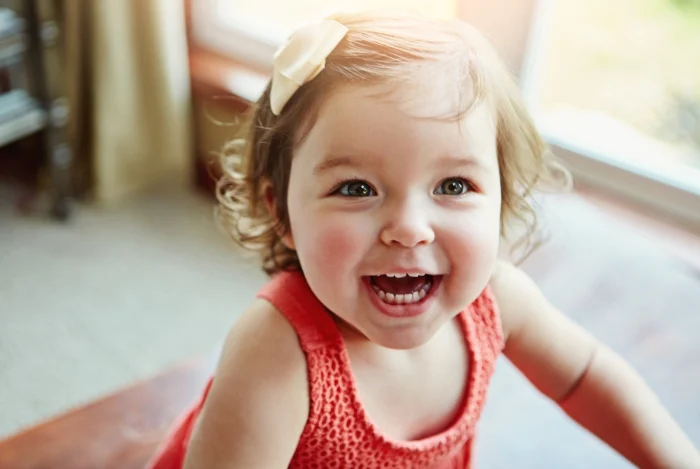Even though baby teeth will eventually fall out, keeping your baby’s teeth clean is key to healthy adult teeth. As a parent you may have many questions about how to care for your baby's teeth, such as when or how to brush baby teeth, or how to brush when they won't cooperate.
Why Brushing Is Important for Babies
Brushing baby teeth is important for many reasons. Baby teeth are important for holding space for adult teeth, and play an important role in how children learn to chew, smile, and talk. It is important to establish these good oral health routines early on to prevent dental decay in both baby and adult teeth.
If baby teeth have decay and need to be removed, it can cause other baby teeth to move, reducing space for adult teeth to come in. If poor oral habits continue, it’s much more likely that adult teeth will also decay.
Tips on How to Brush Baby Teeth
You should start brushing as soon as your baby's first tooth starts to come in. However, you can care for their oral health before the first tooth arrives. There are stages to when baby teeth appear in the mouth and different ways you should clean them.
Newborns
After feedings, gently clean your baby's gums with a soft, damp cloth, or a soft rubber or silicone finger brush. For now, just use water instead of toothpaste.
4-6 Months
Once the first teeth start to arrive, switch to a brush with soft bristles. Moisten it with water and use a smear of fluoride toothpaste, with at least 1000 ppm of fluoride. Make circular motions just like you do with your own teeth. Make sure your baby isn't swallowing toothpaste. It's unlikely your baby will be able to spit out the toothpaste. So afterwards, simply wipe away the excess. This allows fluoride to remain in the mouth and protect the teeth.
6-24 Months
Continue using a brush with soft bristles, moistened with water. Brush all surfaces for up to 2 minutes, twice a day at night and one other occasion during the day. It's unlikely your baby will be able to spit out the toothpaste. So afterwards, simply wipe away the excess.
Tips on How to Make Brushing Easier
If your baby doesn't want to cooperate during brushing, there are several things you can do:
Newborns and young babies may find brushing uncomfortable, so be gentle.
It can be helpful to sing a song or cheer them on, which can calm babies and help engage toddlers.
Do keep talking and reassuring your baby during brushing.
Some babies resist more than others. It is quite normal. There are several different ways to hold wriggly heads, arms and legs.
If your baby turns their head away, it might be useful to hold your baby’s forehead lightly with your hand to stop them from wriggling and allow you easy access to their mouth.
You may also find that allowing a baby to choose their own brush gets them excited about brushing; Oral-B® Toothbrushes have lots of designs that feature popular Disney® and Pixar® characters.
